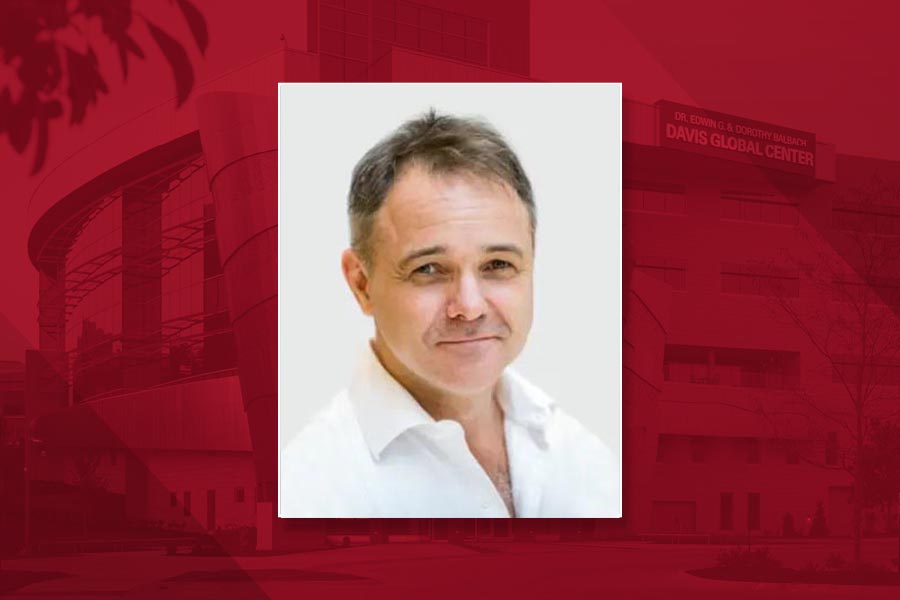The world cannot afford to treat pandemics as discrete crises, warns Jeremy Farrar, DPhil, one of the most respected voices in global health and an international leader in the COVID-19 crisis.
“We must appreciate that we are going to face a far more frequent and far more complex epidemic and pandemic mix during the 21st century,” he said, addressing the second session in the UNMC Global Center for Health Security’s Never Again Summit on Jan. 30.
Communities, governments and leaders “need to think short-term and long-term at the same time,” said Dr. Farrar, who currently serves as director of the Wellcome Trust and soon will assume duties as the new chief scientist for the World Health Organization.
Dr. Farrar shared his thoughts during a wide-ranging virtual interactive discussion about global health, pandemics and health security with an audience of more than 200 attendees from around the globe. He was joined by panelists from UNMC’s Global Center for Health Security (James Lawler, MD; Lauren Sauer; and John Lowe, PhD), Mount Sinai Hospital (Brendan Carr, MD) and the Coalition for Epidemic Preparedness Innovations (Richard Hatchett, MD).
With its Never Again Summit series, the Global Center for Health Security has convened some of the world’s leading experts in pandemic response and health emergency preparedness. The goal of the series is to highlight lessons from the ongoing COVID-19 pandemic and develop innovative partnerships to prevent similar outcomes in future pandemics.
Pandemic preparedness planning must be part of an integrated approach, Dr. Farrar said. “We must move away from thinking how we would prevent, prepare for, respond to and recover from a single episode,” he said. Instead, resilience should be built into crisis planning and integrated into what is being done daily.
The COVID-19 pandemic, he said, also has shown that “what you have before a crisis hits really makes a difference when a crisis hits.” Thus, the need to create a business-as-usual planning mentality that addresses resilient health systems, more equitable societies, a strong research and manufacturing response, and people and institutions that accept scientific advice and data is critical. “You don’t build an army the day before you are about to face a war,” he said.
Such planning, he said, provides greater health benefits and elevates trust when a crisis does occur.
In planning for future crises, Dr. Farrar reminded his colleagues to “keep patients, families, communities at the heart of what you do. … It’s where epidemics start and where they finish.”
